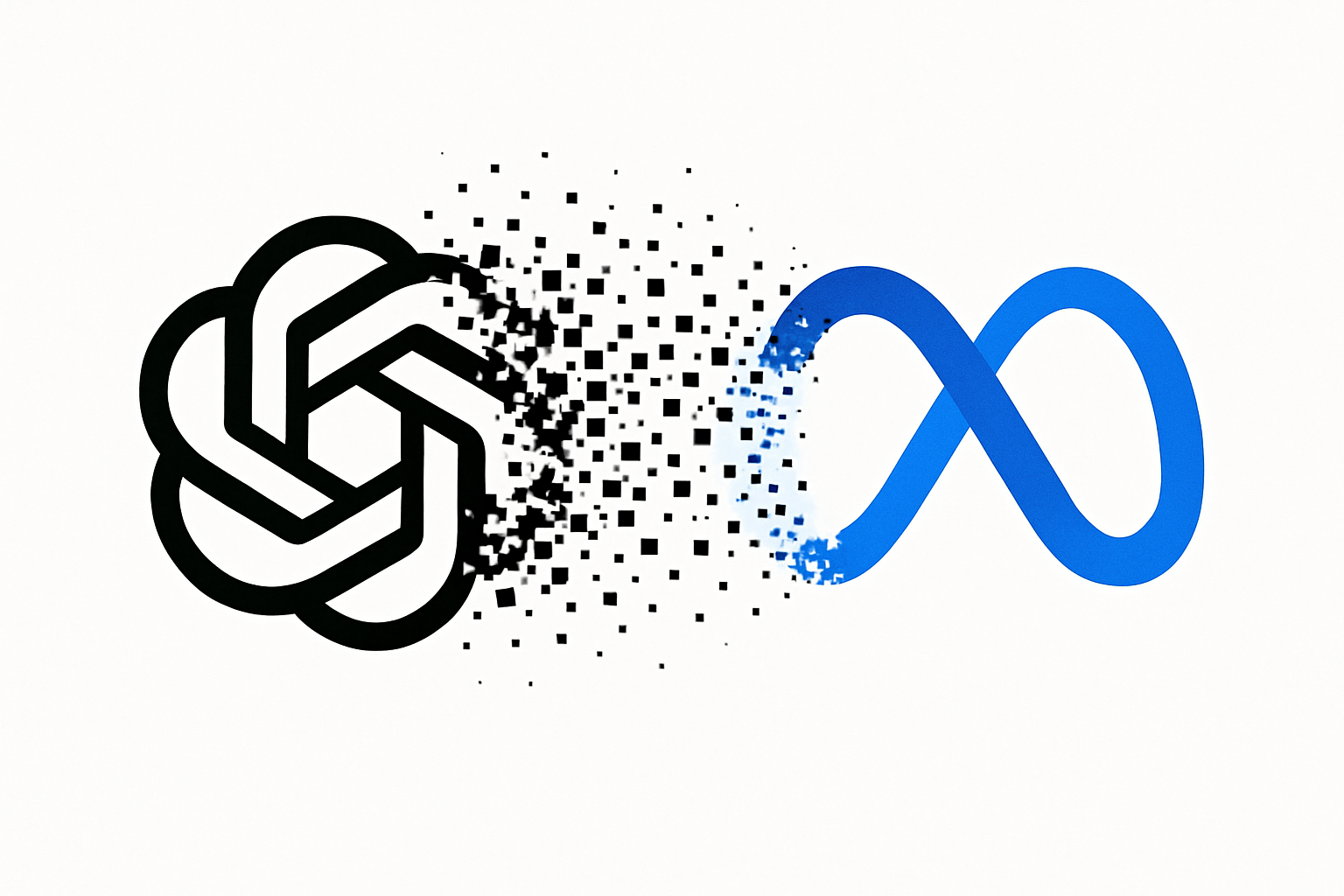Meta's superintelligence hires left for OpenAI after only a few weeks

Update –
- Added additional sources
Update from August 29, 2025:
Meta spokesperson Dave Arnold confirmed to The Verge that Ethan Knight left the core "TBD Lab" team just weeks after joining. Knight had been part of Meta's small, high-caliber group focused on superintelligence research. Arnold also clarified that Avi Verma and Rishabh Agarwal, who recently left as well, were part of Meta's larger "superintelligence organization," not the core team - a distinction that seems like PR hair-splitting.
The situation around Shengjia Zhao, one of the original developers of OpenAI's ChatGPT, has also drawn attention. The Financial Times reports Zhao threatened to quit Meta and return to OpenAI, even signing paperwork to make the move official. According to four people familiar with the matter, Meta responded by giving Zhao the new title of "Chief AI Scientist." Meta spokesperson Andy Stone says Zhao was a cofounder of the Meta Superintelligence Lab (MSL) and held a leadership role from the start, which doesn't contradict reports that he nearly left.
The Financial Times also reports there have been tensions between Mark Zuckerberg and Superintelligence Labs chief Alexandr Wang over how quickly Meta should push toward superintelligence, with Zuckerberg reportedly demanding a faster pace.
Meta dismissed those rumors, calling them "manufactured tension without basis in fact that's clearly being pushed by dramatic, navel-gazing busybodies."
Article from August 27, 2025:
At least two prominent AI researchers have left Meta's Superintelligence Labs just weeks after coming on board.
Avi Verma and Ethan Knight each spent less than a month at Meta before returning to OpenAI, WIRED reports. Knight had previously worked at Elon Musk's AI startup xAI.
Chaya Nayak, who led generative AI efforts at Meta for years, is also heading to OpenAI. The reasons for these rapid exits haven't been made public. For Meta, which is pouring billions into building its own superintelligence lab and aggressively recruiting top talent, losing key hires this quickly is a major setback.
AI researcher Rishabh Agarwal announced his departure from Meta on Monday. "I felt the pull to take on a different kind of risk," Agarwal wrote on X, calling it a "tough decision."
Agarwal, who previously worked at Google Brain, DeepMind, and Meta, joined Meta in April before moving to the superintelligence team. In his farewell post, he praised Meta's "talent and compute density," but ultimately decided to walk away.

It's unclear why building superintelligence at Meta lost its appeal for Agarwal. He may have doubts about the technical direction, or there could be friction inside the lab, like pay gaps between longtime staff and new hires.
An isolated top team with a billion-dollar budget
Meta launched Superintelligence Labs just a few weeks ago, aiming to outpace rivals like OpenAI in the race to build advanced general AI. The team is made up of researchers recruited from OpenAI, Google DeepMind, and Apple, and reportedly operates almost entirely in isolation from the rest of Meta.
The lab reports directly to Mark Zuckerberg and has full access to Meta's infrastructure. It is led by Alexandr Wang, the 28-year-old founder of Scale AI. Even Yann LeCun, Meta's longtime head of AI and leader of the FAIR research group, now reports to Wang.
LeCun's FAIR remains as Meta's core research unit, tasked with developing new ideas for large-scale model training as needed. FAIR is now joined by three other groups: the TBD Lab for large models, a product-focused research team, and a central infrastructure group. The previous AGI division has been dissolved.
Meta has been aggressively poaching talent for Superintelligence Labs, reportedly offering new hires up to $300 million in total compensation over four years. Several top researchers have left OpenAI for Meta recently. OpenAI's head of HR has called Meta's recruiting tactics "desperate" and "unethical."
AI News Without the Hype – Curated by Humans
As a THE DECODER subscriber, you get ad-free reading, our weekly AI newsletter, the exclusive "AI Radar" Frontier Report 6× per year, access to comments, and our complete archive.
Subscribe nowAI news without the hype
Curated by humans.
- Over 20 percent launch discount.
- Read without distractions – no Google ads.
- Access to comments and community discussions.
- Weekly AI newsletter.
- 6 times a year: “AI Radar” – deep dives on key AI topics.
- Up to 25 % off on KI Pro online events.
- Access to our full ten-year archive.
- Get the latest AI news from The Decoder.